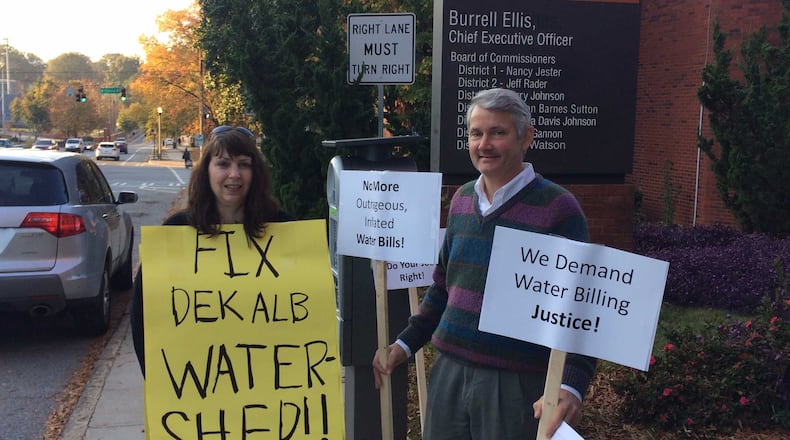The number of problematic water meter readings in DeKalb County has jumped this year, resulting in many residents being overcharged.
DeKalb Chief Operating Officer Zach Williams said Tuesday that the county is focusing on fixing meter reading errors, which appear to be the main reason for unusual billing increases.
Hundreds of residents are protesting inexplicably high water and sewer bills that in some cases exceed $1,000.
Meter reading problems are showing up 18 percent of the time that the county has recorded customers’ water usage so far this year, compared to 13 percent last year, Williams said. Those errors often result in high or low bills.
“You can see how bills get enormous quite quickly,” Williams told county commissioners.
These meter reading issues, called exceptions, occur when the county workers record unusual water consumption, fail to read meters at all or identify other difficulties. The county has about 18,000 exceptions each month.
Meter readings that are 300 percent higher than normal make up the largest part of these problems. Some meter reading mistakes are caused by digital water meters that malfunction when they get wet.
“This is simply unacceptable,” Williams said. “Those exceptions increasing has really brought this to a crescendo.”
A couple of residents protested outside the meeting Tuesday, holding signs saying “Fix DeKalb watershed” and “No more outrageous, inflated water bills.”
“We haven’t seen any systemic change or much improvement in customer service,” said Ellen Buettner, one of the protesters.
Bill Cox joined her, saying he keeps hearing horror stories about high bills.
“New cases continue to pop up, which means they haven’t changed anything,” Cox said. “How is it even possible to generate bills like this?”
The county is instituting several changes to reduce the number of meter misreads, with the goal of reducing the exception rate to 5 percent by the first quarter of next year:
- Review meter readings before sending them to the billing department.
- Email customers when their bill is being delayed because of a potential issue.
- If a bill more than triples, the county will charge those customers an average amount while it investigates.
- Assign hand-held meter reading devices to individual meter readers to hold them accountable for mistakes.
- Hire additional staff.
About the Author
The Latest
Featured


